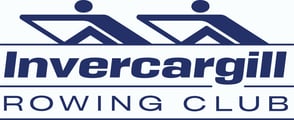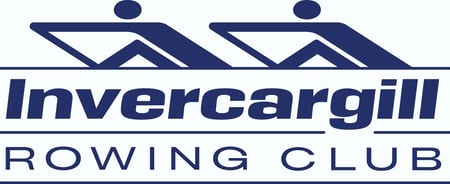How old do I have to be?
We welcome anyone from school Year 7 up. Our younger rowers focus on developing their technique and having fun in our learn to row programme. We also welcome younger rowers who would like to learn how to be a coxswain. From school Year 9 up, rowers generally start participating in regattas.
Am I too old to start rowing?
No! You're never too old to row. We cater for beginners of all ages and welcome those who may have rowed at school and wish to return to the sport. If you are a senior in college and want to start rowing, fantastic! While we welcome rowers from Year 7 up, it doesn't matter if you haven't started till you are a senior. Older students have the mental and physical maturity to be able to grasp the basics quickly and often make great strides in the course of one season. No matter what your age, if you are keen to row, give it a go.
What do rowing fees cover?
Competitive school and club rower base fees are $454 per year, which is reviewed at the AGM annually.
These fees cover:
- Use of club equipment, including boats, oars and ergs (rowing machines)
- Club buildings and boats insurance and maintenance
- Club operational costs such as power, coach boat fuel, consumables, building security etc
Fees are generally paid as a one-off annual internet payment, but if this is a problem arrangements can be made with the club treasurer for weekly, or monthly payments. We really would love for anyone who wants to row to be able to do so and will always try to work out a way to help facilitate this.
Are there any other costs to pay during the rowing season?
Yes the club fees have a user pays structure. The base fee covers the general operating cost of the club, however there are costs associated with way regattas, such as the insurance, registration, warrants and maintenance of the boat trailers that are recovered from those that get the benefit from their use. Each regatta usually has an entry fee that is paid before participating, along with the local and national rowing association affiliation and competition fees when applicable. Travel and accommodation for away regattas is also the responsibility of those that require it. Often a parent is nominated to coordinate the needs of the rowing squad. All of the coaches time is voluntary, so their accommodation costs are expected to be covered by the squad they coach.
All rowers who participate in away regattas are required to assist with the loading and unloading of the boat trailer before and after the regatta.
Do I have to participate in the club fundraising activities?
The club has an annual garden fertiliser sales fundraiser in August/September. All members are required to make time to deliver advertising flyers, bag fertiliser and help deliver it. Parents are also encouraged to help by supplying vehicles and trailers for fertliser deliveries. This fundraiser helps keep the membership fees as low as possible and currently reduces them by more than $400 per member. If you are unable to participate in the annual fertiliser fundraiser, you are expected to contribute financially, or organise some other fundraising activity during the season.
When is the rowing season?
The main active rowing season (for school and club rowers) starts in September and finishes in March/April. The club regatta season runs through to February and is then followed by the school regatta season through to March/April, with the climax of the season being the Maadi Cup (National Secondary Schools Regatta). Rowers have a short break at the end of the season and then build slowly over the winter. There are however long distance races held monthly on the Oreti River over the winter months. Membership registrations for the season open on 1 September and the formal end to the season is 31 August.
Why do I need to renew my annual membership online for both our club and Rowing NZ
The incorporated society act requires all all organisations who are an incorporated society to have a management system which all members must phisically, or electronically complete a membership form. Other than life members they can not roll over from one year to the next.
The online member management system that the Invercargill Rowing Club subscribes to, is called "Friendly Manager" and is linked to our clubs website. The online member management system that Rowing NZ subscribe to, is called Rowing Connect, which is a "Game Day" product.
What is Rowit?
Rowit is a web based application that Rowing NZ subscribe to, that has links to their member management system "Rowing Connect". It is a web site that advertises coming rowing events, enables entries to be placed by club officials and records results of events as they occur.
What time of the day do you row?
The rowing schedule is dependent on the availability of the coach(es) in discussion with the rowers.
In general:
- Weekday sessions are held after school/work
- Weekend sessions are on Saturday or Sunday mornings
Most sessions run for roughly two hours.
What should I wear for rowing?
Wear close-fitting gym-type clothing that you don't mind getting wet. High visibility colours are especially appreciated. If it is cold enough for a sweater, try to avoid pockets in the front as your oar handle can get caught, making it difficult to row. Our boats have rowing shoes in them to use but bring your own socks. It's a good idea to wear a cap and always wear sunscreen. For wearing on land before and after you row, bring lightweight shoes that can be easily removed, get dirty, get wet, etc. Jandals or slides are great options.
For regattas, you will need a club uniform. These can be seen in the Merchandise page. First year rowers wear a club singlet and black shorts, Second year rowers wear club row suits, however master rowers often prefer to continue wearing a club singlet over a tee shirt and shorts, or leggings.
Why do I need to fill out the log book every time I take a boat on the water?
This is a very important health and safety action incase somebody has an accident on the water and has not returned when expected. Another club member, or coach can then go looking for them and to provide assistance. They need to know if you went are upstream, or downstream. It also gives an indication of the usage of boats and sculls/oars.
How do I get access to a clubroom door access tag?
Door access tags are not available for first year rowers and then only available to rowers when a coach can confirm the member is trustworthy enough to hold an access tag and they agree to abide by the club key issue policy. There is a $50 fee associated with obtaining a door access tag to obtain access the clubrooms, $20 of this fee is a bond that will be paid back when the access tag is returned to the club building and security manager. A unique security system pin number may be supplied with the access tag to disarm and arm the alarm system when arriving and leaving.
How fit do I need to be to row?
We cater for all fitness levels. Rowing is a great way to get in shape and develop muscle tone and cardiovascular fitness.
How safe is it when we are rowing?
The club has a safety manager appointed, along with an approved health and safety plan that meets the Rowing New Zealand requirements. New rowers will have a coach boat accompying them, which has all the safety gear in them if required. The rowing skiffs will remain afloat when upturned, or swamped, so you stay hanging on to the skiff until rescued. Personal floatation devices (PFD) are available to carry in the skiff, if you are not being accompanied by the supporting coach boat.
Can I row and still participate in other sports?
Yes! Many of our athletes choose to participate in other sports, especially over winter when the rowing season has slowed down. During this time, we try to schedule rowing training sessions at a time that is least likely to interfere with other sports (ie. Sunday morning and not Saturday morning).
Can I store my private skiff in the clubs boat sheds?
Yes. However it is subject to committee approval confirming a suitable space is available for it, and it does not make access to club skiffs difficult. An annual storage fee of $100 is applicable.
Who owns the green boat storage shed?
The Invercargill Rowing Club owns, insures and pays the land lease for the green boat storage shed, but has an agreement with the Awarua Boating Club for them to use the boat racks on the south wall in recognition of the assistance their senior members gave during the construction of the shed and the ongoing storage of several older IRC skiffs, in their Bluff clubrooms.
What is a dual membership
A dual membership enables a person who is a full financial member of another rowing club to also become a member of the Invercargill Rowing Club. This gives them access to all the club facilities, equipment and showers, but not the use of the club boats. It also gives them voting rights at the AGM and special club meetings.

